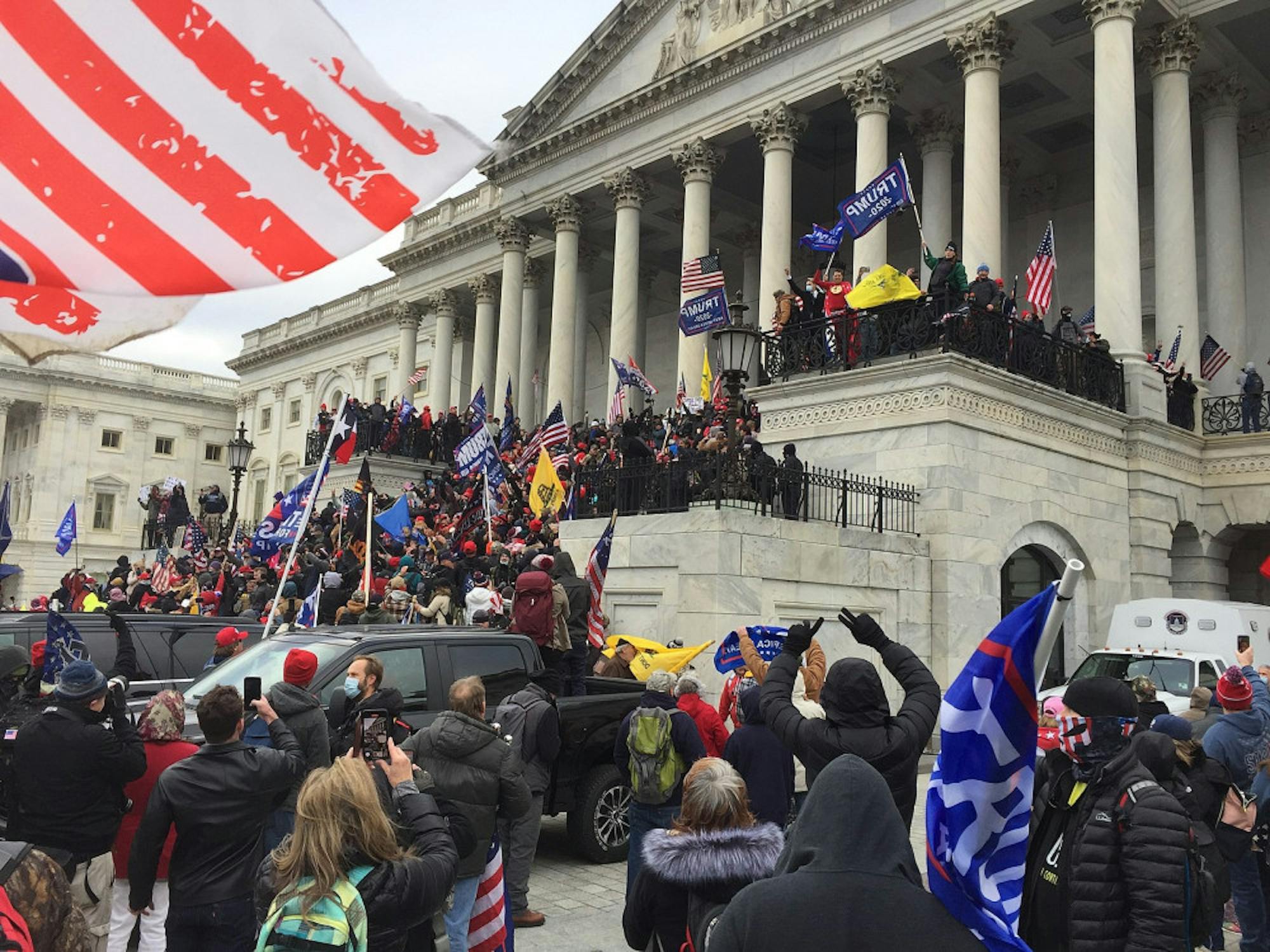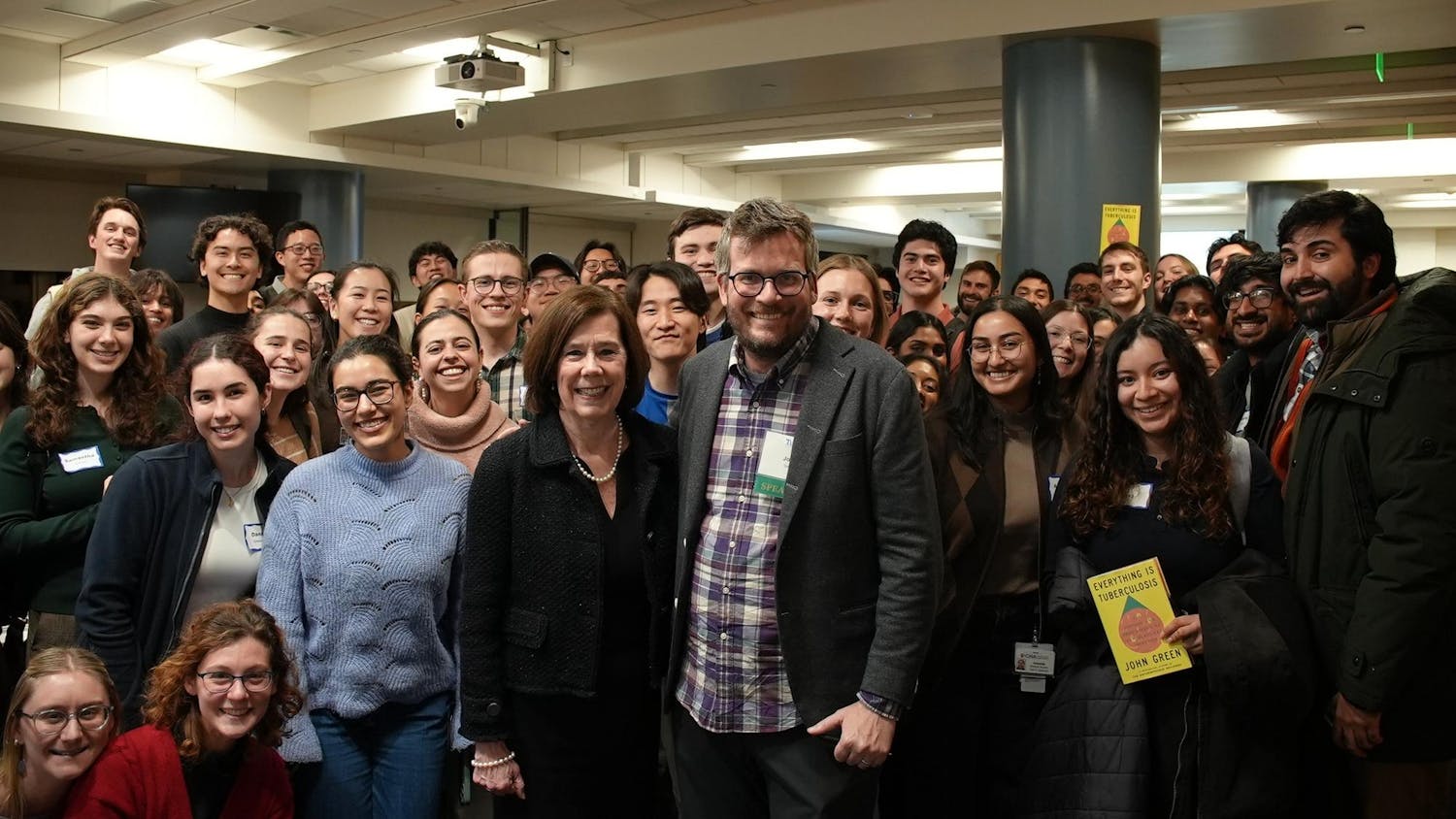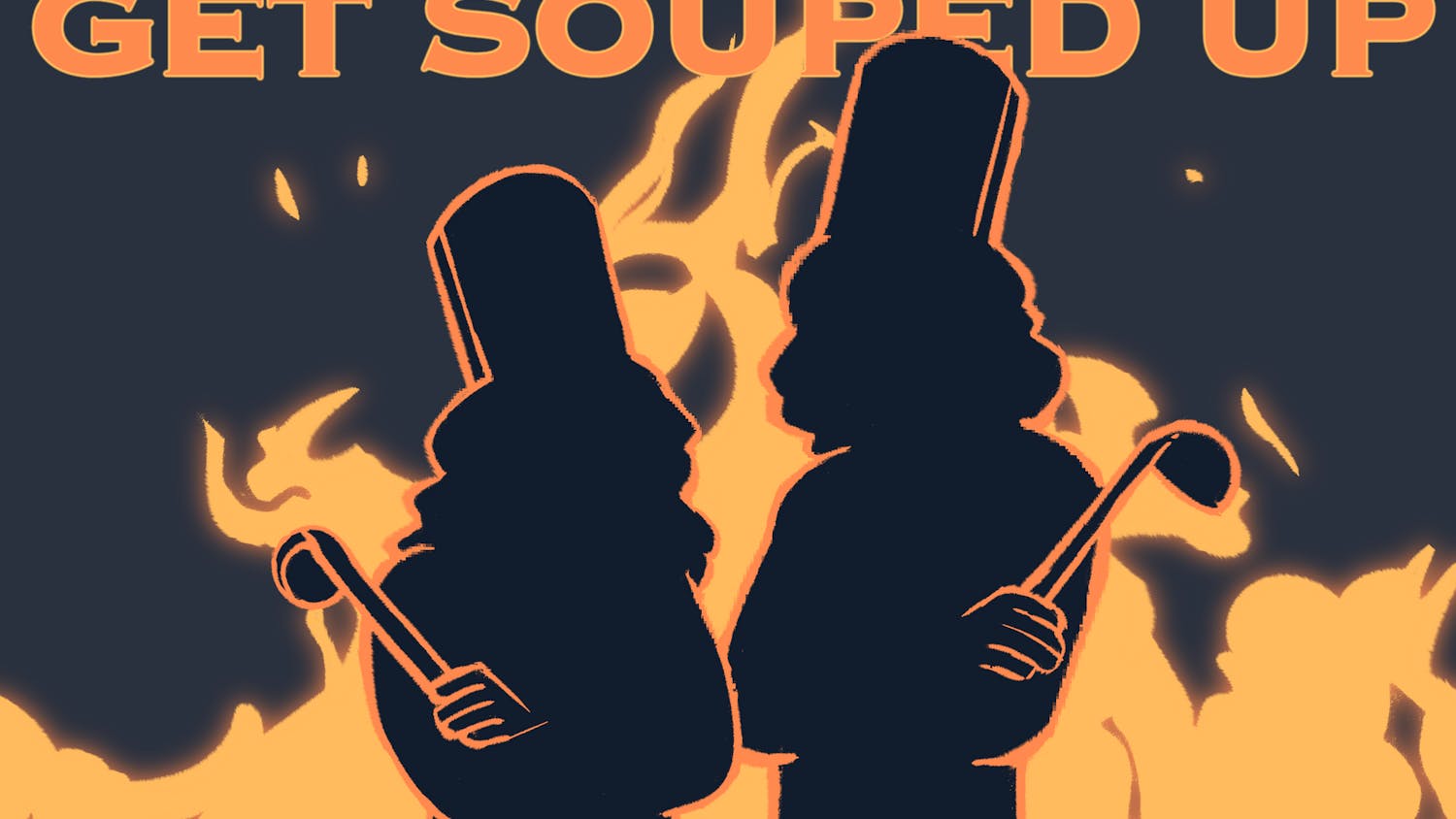Disclaimer: Hannah Cox is a contributing writer at the Daily. Cox was not involved in the writing or editing of this article.
Democracy is a concept that Americans have been accustomed to since the nation’s founding. For many, democracy is an incontrovertibly robust form of governance that establishes fair representation for all and withstands internal political fissures. For some Americans, democracy could not fall, let alone backslide.
Such optimism about democracy can be hard to find in 2022. More than a year after the Jan. 6 insurrection that jeopardized the peaceful transfer of power for the democratically elected government of President Joe Biden, many Americans are growing anxious about the state of American democracy. A recent Associated Press poll outlines that 52% of Americans believe that democracy is not working in the United States.
Scholars and politicians are also sounding the alarm. A study conducted by the Carnegie Endowment for International Peace establishes that the United States is experiencing a phenomenon known as “democratic backsliding.” Such backsliding is, in part, fueled by extreme political radicalization that manifests in violence and challenges to free and fair elections.
Biden also warned of America’s democratic backsliding in his Nov. 2 speech, citing election deniers that are running for various positions in the midterm elections and the attack on House Speaker Nancy Pelosi.
Understanding the history of democratic backsliding in America has become central to determining the causes of current threats to American democracy. For Department of Political Science Chair and Associate Professor Nimah Mazaheri, this is not the first occasion America has experienced a manifestation of democratic backsliding.
“We can certainly look throughout American history and find many instances in which you did not have any of those things that we call democracy for all segments of the population,” Mazaheri said. “Things like the increasing role of special interest groups in our political system … increase in gerrymandering, increasing repression of people’s ability to engage in free protests against the government, voter disenfranchisement, … all of these things were surfacing prior to the election of Donald Trump.”
Echoing Mazaheri’s sentiments, Sociology Lecturer Utku Balaban asserted that the seeds of America’s current democratic backsliding were planted before the 21st century. For Balaban, this backsliding emerged from a decline in Americans’ feelings of belonging to a community and a simultaneous increase in social isolation.
“I don’t think this tension about democracy-related issues just started within the last decade. … [The] historical process … started for the most part in the early 1980s,” Balaban said. “Basically since the 1970s, the unionization rate in the United States has been going down. This … was a strong signal coming from the government to civil society about a new mindset. … We just witnessed a decline in the interest in public and civil organizations all around the country.”
From Balaban’s perspective, this democratic backsliding is rooted in the conception of American individualism.
Hannah Cox, a junior and the social media manager for Tufts Cooperation and Innovation in Citizenship, discussed the way social media feeds into extremism.
“It can be really hard to be like ‘Wait, I'm falling into this rabbit hole, I need to go look at something from the opposing side and find my own perspective,’” Cox said. “[Social media] just makes it so much … harder to have political discourse and to disagree with other people.”
For Aidan Connors, a first-year student, social media played a substantial role in exacerbating political radicalization during the height of the COVID-19 pandemic throughout 2020.
“I think a lot of people got really tapped into their phones during the pandemic, because … [we were] all stuck at home,” Connors said. “The thing about social media is that it glorifies bullying, especially in a political sense. You get praised, you get a lot of comments, you get a lot of likes, you get a lot of positive feedback from just saying really mean things about people who have different ideas.”
In the modern age, social media has become a new outlet for people to express their politically motivated aggression. Historically, political violence has been endemic throughout American history, whether that be during the lead-up to the Civil War in the 1850s or reactionary backlash to the civil rights movement of the 1950s and 1960s.
However, the prevalence of political violence in contemporary America has shocked many policymakers. According to TIME Magazine, more than 9,600 recorded threats were made against congresspeople in 2021, representing a more than tenfold increase since 2016.
Many of these threats are being perpetuated by far-right extremists, some of whom are associated with groups such as the Proud Boys and Oath Keepers. It is a trend that Cox sees as part of the backsliding process.
“I wouldn’t say that [the Jan. 6 insurrection was] the culmination necessarily, but I do think [it was] a step towards democratic backsliding,” Cox said. “We stand as a symbol of democracy and how democracy can be great but also [a symbol of] what threats there are to democracy when we allow people to threaten our democracy, and people in the most powerful position in the country to threaten our democracy in violent ways, nonetheless.”
Some scholars are seeing this heightening political radicalization as a stepping stone on the road towards a unique type of authoritarianism in America. What authoritarianism in America could look like, and whether it would ever take hold, is still unknown, but Mazaheri outlined what an American democracy with authoritarian qualities would look like if it hypothetically emerged.
“I assume that we would still have the electoral system, but you would have a situation where elections are seriously contested, where the losers declare themselves the winners,” Mazaheri said. “You have things like political violence emerging from the supporters of the losers and that sort of fear of unrest emerging. You [could also] have more of this partisanship influence over the main levers of politics: one party being able to [stack] the courts or putting their supporters into influential positions with regards to policymaking.”
As Balaban notes, the causes of these challenges to American democracy are observed in other countries. Although distinct in important ways, Turkey’s gradual fall to authoritarianism can provide a good example.
“What we saw in Turkey was basically very similar to [America] in the 1980s. For instance, like in the United States, Turkey had extensive pro-market reform … and then gradually, we see the expansion of the global export-oriented industrial relations to Turkey,” Balaban said. “Because Turkey is a smaller country, … the political effects of these developments … became visible much earlier than what we see in the United States. … Just looking at the Turkish experience, we see similar developments in the United States [with] growing political polarization, more income inequality and a growing … form of nationalism [and] anti-immigrant sentiments.”
The outcome of the midterms arrive as pessimism about the future of democracy lingers. The question remains of what policies need to be implemented to counteract democratic backsliding.
In this context, a sense of urgency around the seriousness of this backsliding is a start, according to Mazaheri.
“I’m very nervous. … In some ways, there are reasons to be optimistic, but there are many reasons to be pessimistic [about the future of American democracy],” Mazaheri said. “A lot of people in this country have taken [democracy] for granted, but I do not think they are doing that now. It is something you have to be vigilant about in order to preserve [democracy].”
Cox not only expressed a similar urgency but encouraged Tufts students to get more engaged in politics.
“I think everybody, regardless of what [they] believe, is scared that what we believe is not going to be reflected in our country anymore,” Cox said. “I think our democracy is becoming less representative of what the people want, and it’s becoming more politically divided. And I think that is scary … [but] I don’t think that people are doing enough to combat that.”
For Connors, Tufts students can be engaged in various political activities, even if they are not necessarily all-encompassing.
“I am not even saying you need to spearhead your own organizing campaign, [but] if you are voting in your home state, sign up for a phone bank for whoever you are supporting,” Connors said. “We live close to some pretty impoverished areas [where] a lot of groups are doing a lot of important political and community work that you can get involved in easily. I just think that there is a little bit of money [to put] where your mouth is.”






